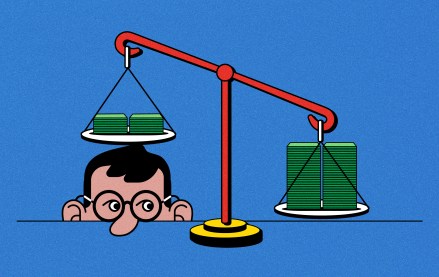Secure your place at the Digiday Publishing Summit in Vail, March 23-25
Artificial intelligence won’t take over media buying anytime soon
In 2017, it seems as if many in the ad industry did a find-and-replace to swap out “big data” with “artificial intelligence.” The dream of 25-year-old media buyers being replaced by robots that aren’t hung over or on the hunt for jeans parties will be a dream deferred, at least in 2018.
This is because most digital advertising problems don’t require algorithms as complicated as winning a chess game as solutions. Media planning and buying will remain a mostly human endeavor, as brands come to terms with the reality that implementing has high upfront costs for the promise of uncertain future savings — and comes with a loss of control.
“From an agency perspective, you need hundreds of millions of dollars to develop AI and then you need to hire people to run it,” says Mike Racic, president of media operations for agency iCrossing. “There are only a handful of data scientists who can maintain AI, and they usually work for companies like Google.”
Peter Randazzo, CTO for agency Merkle, also thinks that many AI use cases in media planning and buying are mostly machine learning because the media market is an asymmetrical data market, and the machine needs to be trained by human. For instance, in programmatic, agencies don’t see the ad exchange environment, and they don’t know what bids they are auctioning against. “The media market is not a clean cut like the stock market,” says Randazzo.
At GroupM’s Xaxis, a machine learning algorithm decides the right bid price in programmatic buying. AI is also used to change ads on the fly to be more targeted. These are still “the easiest use cases,” says Sara Robertson, vp of product engineering at Xaxis. So far, AI isn’t used much in media planning. Robertson’s team is prototyping a recommendation engine this year: If her team has run campaigns for the same client a few times, the machine will suggest a media-planning strategy for the new campaign. But completely letting the machine do media planning isn’t a near-term possibility, she says. “The more you let data inform your campaign decisions, the less control you will have,” she says. “Clients need to learn to trust the machine.”
There are AI platforms like Albert and Frank that promote their abilities of letting advertisers execute a full digital campaign without human operations. Robertson thinks that those solutions could work for small-budget advertisers who don’t have lots of data and sophisticated ad campaigns, while big ad spenders still need that human touch.
“When you get more ambitious branding goals and more KPIs, it’s harder to execute. People say that AI can be delivered in a form of an easy button and does everything for you, but I think we are a long way from that,” she says. “Clients with at least $100 million budget still want to have the lever to move things around on their own.”
More in Marketing

Brands at eTail Palm Springs share lessons on the ‘messy middle’ of building AI tools
Here’s a rundown of lessons brands have shared about their AI implementations so far.

Despite 2025 revenue beats, The Trade Desk’s stock price falls sharply after earnings update
Despite 2025 revenue nearing $3 billion, lower-than-expected Q1 guidance disappoints, as CEO Jeff Green pushes back against competitors and detractors.

Brands celebrate tariff reprieve, but fresh uncertainty looms
After the Supreme Court struck down Trump’s tariffs, brands welcomed the relief but say ongoing trade uncertainty and unanswered questions about refunds are keeping business decisions on hold.





